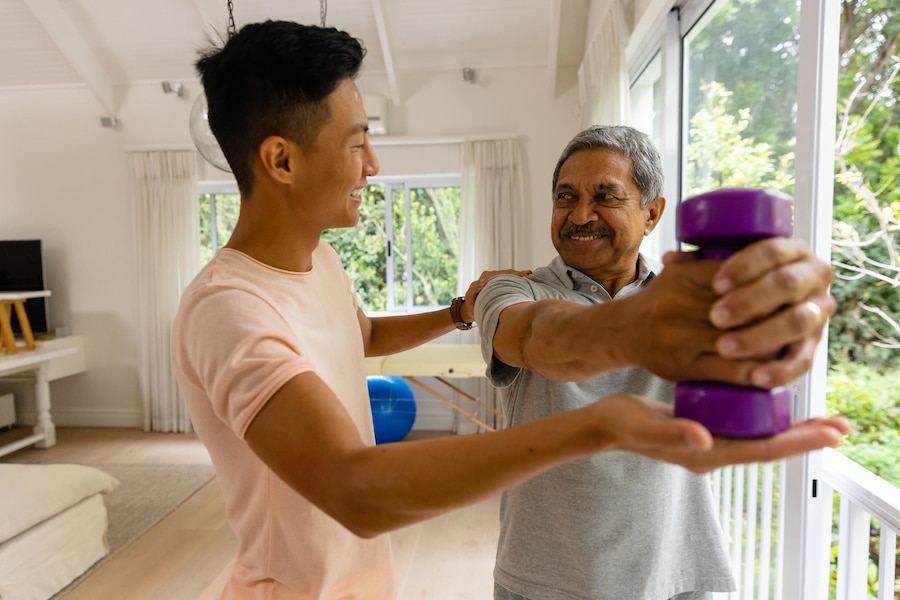Aging is a natural and inevitable process that affects everyone. With advanced medical facilities available even in smaller towns and significant progress in managing chronic illnesses, people are living longer, often with multiple diseases. Despite these medical advancements, there has been a dramatic shift in the family and societal structure, especially within the Indian community. Urbanization, migration to bigger cities, and the adoption of nuclear family structures have led to a loss of traditional caregivers—usually family members—who once took care of the sick and elderly.
While aging itself presents many challenges, the most significant issue faced by the elderly today is the lack of a focused healthcare delivery system that caters specifically to their unique needs. Coimbatore, considered a preferred destination for elderly individuals from Tamil Nadu and neighboring states, offers a favorable climate and low cost of living. However, its medical sector is not yet fully equipped to meet the growing healthcare demand of this population.
The Importance of Wellness in Aging
Wellness, defined as the state of subjective happiness and well-being unrelated to the mere absence of disease, plays a crucial role in the philosophy of “aging well.” A holistic approach to health and life sets the foundation for graceful aging. Preparation for such a lifestyle should ideally begin early in life, with the goal of balancing all dimensions of wellness. However, the aging process itself can disrupt this balance. Efforts should be made to optimize compromised functions and enhance others that can contribute to overall well-being.

For ease of understanding, wellness has been divided into seven key dimensions: physical, emotional, spiritual, vocational, social, environmental, and intellectual. Each of these dimensions is equally important and can compensate for or support the others. Let’s take a brief look at each dimension and how you can work on them to maintain a healthy aging process.
Physical Dimension
Maintaining physical health is essential in aging well. Here are some important tips:
- Monitor Your Health: Regularly check your blood pressure, sugar levels, cholesterol, and body weight. Visit your physician regularly to keep your health in check.
- Stay Active: Walk for 45 minutes daily at a comfortable pace. This does not have to be done all at once—take breaks as needed.
- Strengthen Your Muscles: Engage in muscle strengthening and balance exercises for at least 20 minutes daily. Exercises like chair exercises, yoga, and Tai Chi can help prevent falls.
- Get Adequate Sleep: Aim for at least 6 hours of uninterrupted sleep each night. Avoid sleep medications, as a warm glass of milk may help you relax. For frequent nighttime urination, reduce fluid intake after 4 PM and consult your doctor about any medications causing this issue.
Emotional Dimension
Aging can trigger emotional challenges such as grief, depression, and loneliness. Here are a few ways to address emotional health:
- Talk and Listen: Open up to friends and loved ones about your emotions. Counseling, support groups, and group therapies can be great resources for emotional support.
- Stay Social: Engage in social activities like community groups, prayer groups, or resident associations.
- Volunteer and Help: Volunteering can boost emotional well-being. Helping others brings a sense of fulfillment and can be energizing.
Intellectual Dimension
As we age, cognitive decline such as memory impairment and confusion may occur. While these changes are often age-related, they can be managed:
- Mental Stimulation: Stay mentally active by engaging in hobbies, reading, or learning new skills.
- Seek Professional Help: If memory loss becomes significant, it may be a sign of a condition like dementia, which requires professional evaluation and early intervention.
Vocational Dimension
Retirement doesn’t mean you have to stop working. Engaging in productive activities helps keep both the body and mind active:
- Keep Working: You can continue with your previous job or explore new interests. Hobbies like painting, music, gardening, or learning new skills can be fulfilling.
- Teach Skills: Share your knowledge by teaching skills to others. Learning new technologies, like using a smartphone or computer, can also help keep your mind sharp.
Environmental Dimension
Our environment plays a significant role in our health and safety, especially as we age:
- Keep Your Space Safe: Ensure your living environment is clutter-free. Tape down carpets and rugs to prevent tripping. Install adequate lighting in your home, particularly near stairs and pathways.
- Adapt the Bathroom: Bathrooms are common areas for falls. Install handrails and sidebars, and consider using a toilet seat raiser for added convenience.
Social Dimension
Maintaining strong social connections is crucial for mental and emotional health:
- Get Involved in Community Activities: Participate in local groups, volunteer services, or neighborhood associations. This helps maintain a sense of belonging and reduces feelings of isolation.
- Form or Join a Club: Clubs offer opportunities to connect with others and engage in meaningful activities. For women, such groups can act as a buffer against loneliness.
Spiritual Dimension
Spiritual well-being is personal and varies from person to person. It can play a vital role in emotional health:
- Explore Spiritual Practices: Whether through religion, meditation, or helping others, spirituality offers comfort and healing.
- Meditation: Practices like meditation can be effective tools in managing stress and maintaining emotional balance.
Conclusion: Balancing the Dimensions of Aging
Aging well requires balancing all dimensions of wellness. Each aspect—physical, emotional, intellectual, vocational, environmental, social, and spiritual—contributes to overall health and happiness. Seek timely help when necessary and never ignore signs of physical or mental decline, attributing them solely to the aging process. Remember, aging gracefully is possible with the right approach.
About Dr. Rahul Padmanabhan
Dr. Rahul Padmanabhan is a consultant in Geriatrics and Gerontology with over a decade of experience in elder care. He specializes in home and community-based geriatrics and is currently the medical director of Dr. Rahul’s Elder Care in Coimbatore.



